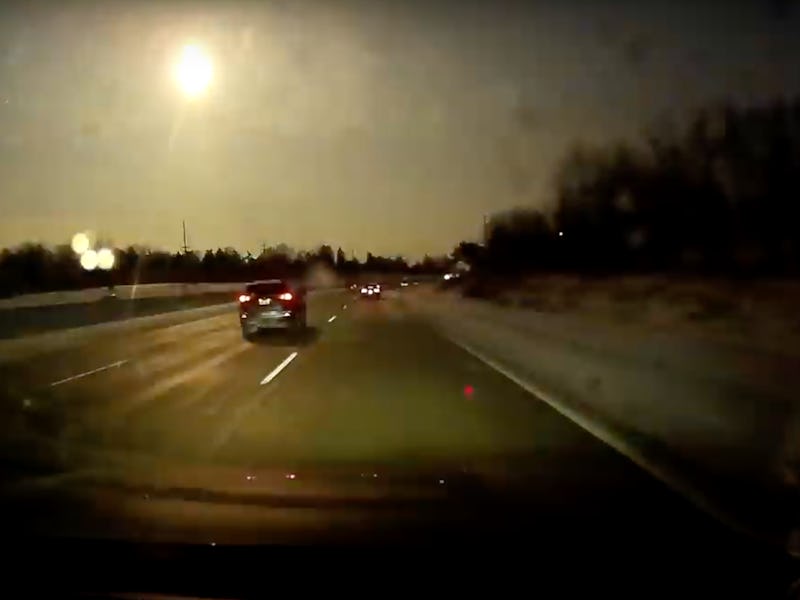Watch This Incredible Meteor Light Up the Detroit Night Sky
The sight was described as looking "like a flashbulb."

A giant fireball lit up the Michigan sky Tuesday evening, as a meteor came hurtling to Earth at a speed of 28,000 miles per hour. Seen as far away as Oberlin College in Ohio, the sight attracted nearly 400 reports to the American Meteor Society.
“All of the sudden, the whole yard started getting brighter, kind of yellowish-orange, like a flashbulb, then got black… ,” Milford resident Mike Tarkowski told Detroit News. “It was something big and it was something up in the air.”
The American Meteorological Society, which received over 355 reports about a fireball around 8:10 p.m. Eastern time, claimed the meteor was seen in Illinois, Pennsylvania, Ohio, Indiana, Missouri and Ontario.
NASA Meteor Watch, an official Facebook pages that tracks such occurences, claims the meteor was “very slow moving.” The fact the rock was also very bright when it entered the atmosphere suggests it came very close to the Earth before breaking apart. This also means there are likely a number of meteorites on the ground, with one weather radar signature matching up with such material falling to Earth.
“Pieces of an asteroid lying near Detroit?” the group said. “Let’s see what the meteorite hunters find.”
Watch the meteor fall to the ground in dashcam footage captured by Mike Austin here:
Another person witnessed the meteor coming down through their in-home Wi-fi camera:
State camera footage also captured the impact:
Although it may seem like a surprise occurrence, experts say that meteorite strikes hit Earth between five to 10 times per year. Many of them go unreported, though, because they hit remote or uninhabited areas. The Meteoritical Society has logged over 1,000 meteorites in the United States alone. This includes groups of stones: when a meteor breaks up inside the Earth’s atmosphere or upon impact, all the fragments are considered a single meteorite.
Still, a flash of flaming meteor is probably the last thing you expect to see on a standard Tuesday evening.